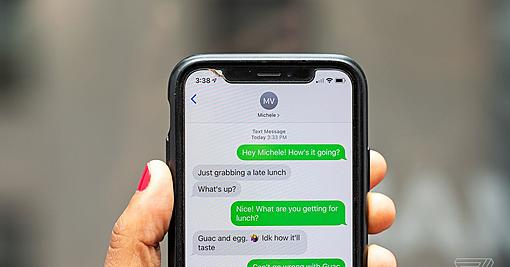Apple knows that iMessage's slotsanook blue bubbles are a huge hurdle for those switching to Android, which is why the service never appeared on Google's mobile operating system. Some of the top executives revealed in a court filing from Epic Games as part of a legal dispute with the iPhone maker.Epic states that Apple is consciously trying to lock customers into the device ecosystem, and iMessage is one of the core services that help do so. It cited comments from Apple Senior Vice President of Software and Internet Services Eddie Cue, Senior Vice President of Software Engineering Craig Federighi, and Apple Fellow Phil Schiller, in support of the argument.
The number 1 hardest reason to leave the Apple universe app is iMessage… iMessage is serious.” In 2016, an unnamed former Apple employee prompted Schiller to respond. Moving iMessage to Android will do more harm to us than it can help us.This e-mail shows why. "
IMessage on Android only serves to eliminate [an] barriers that iPhone families give Android phones to their children.IMessage on Android will help eliminate [an] barriers that iPhone families give their kids their Android phones,” Federighi is concerned, according to Epic,
although a solution to using iMessage on Android comes in. Over the years But none of these methods is particularly convenient or reliable.According to Epic's filing citing Eddie Cue, Apple decided not to develop iMessage for Android in early 2013, following the 2011 release of the messaging service with iOS 5, Cue acknowledged that Apple "was able to create a version on Android that it works with." With iOS "to allow" users of both platforms to seamlessly exchange messages with each other ". Clearly, such a version was never developed.
In addition to iMessage, Epic refers to a number of other Apple services identified as contributing to log-in. These included the FaceTime video chat service, which Steve Jobs announced would be the open industry standard in WWDC 2010.FaceTime was later released on iPhones, iPads, and Macs, but was not yet officially available for non-Apple devices.




 LinkBack URL
LinkBack URL About LinkBacks
About LinkBacks

 Reply With Quote
Reply With Quote








